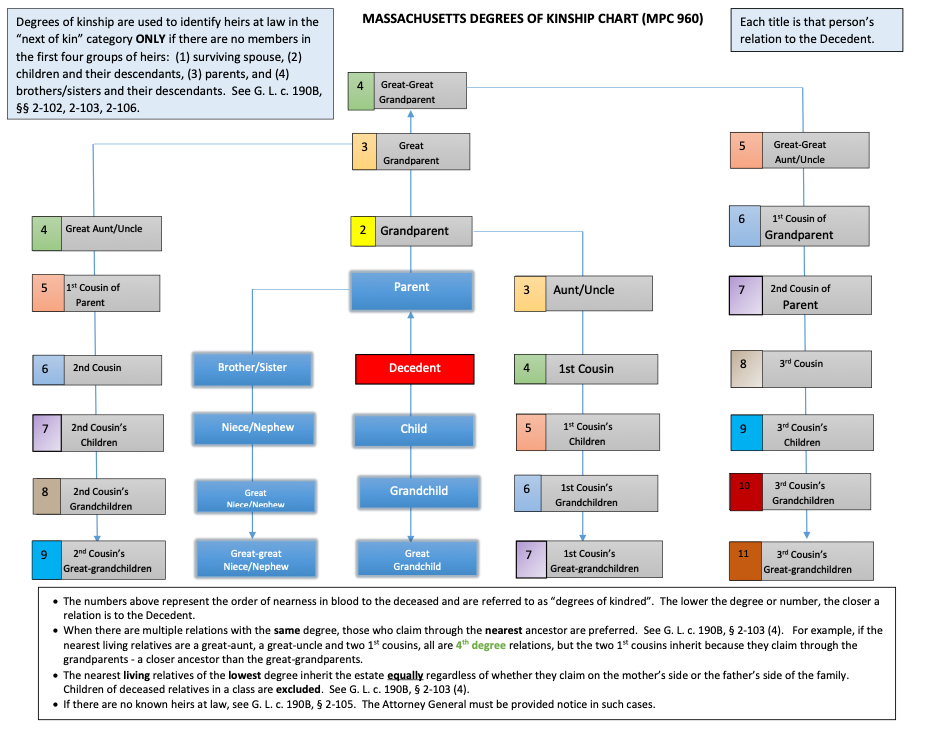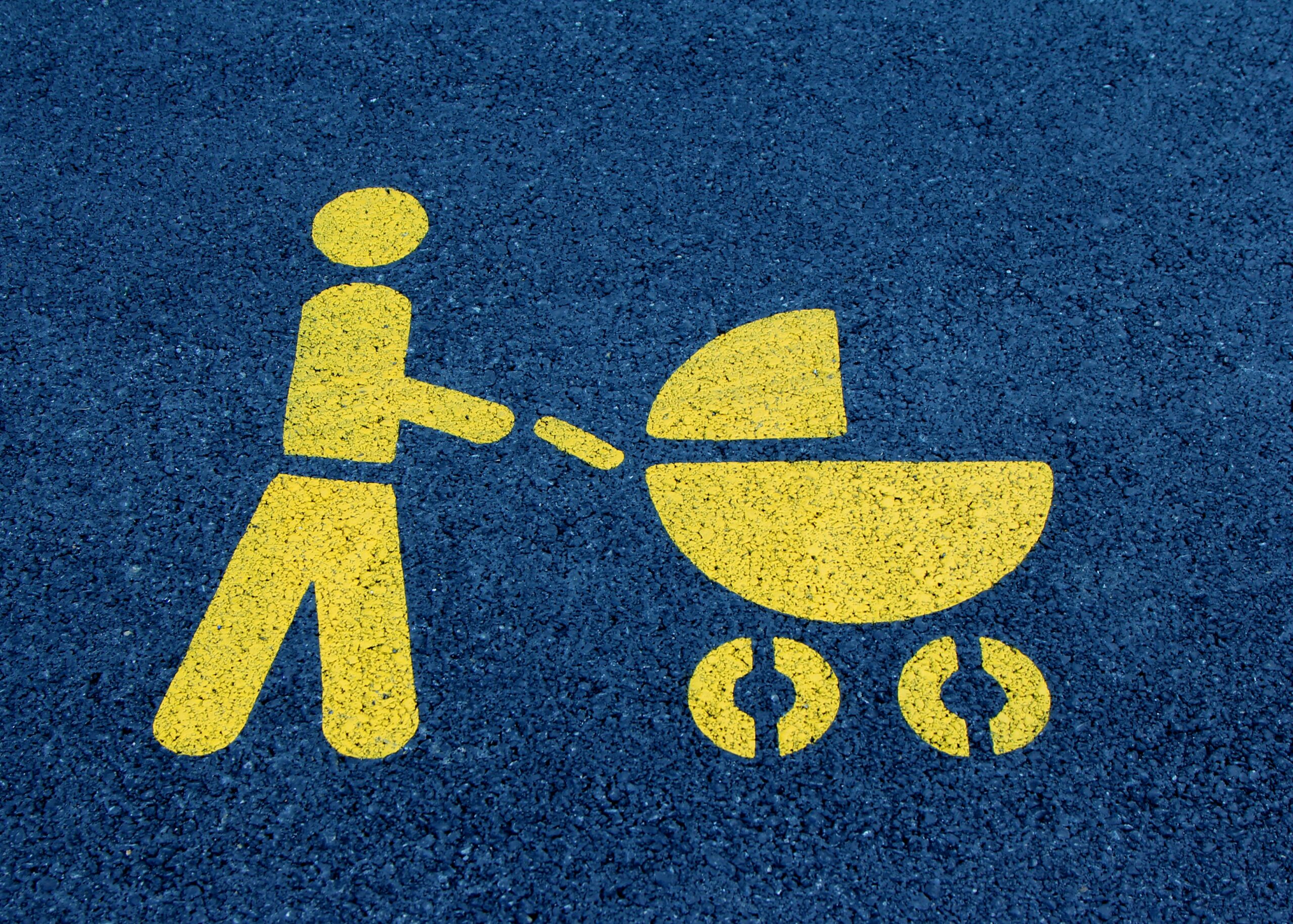What is Intestacy/Intestate Succession?
In our Estate Planning Basics post, we noted that avoiding intestacy is one reason to create an estate plan; but what is intestacy/intestate succession?

If at the time of your death you do not have at least a will, you are deemed to die “intestate.” It is a statutory means for distributing your assets and property. Effectively, the state directs to whom your assets are distributed, and at what percentage; i.e. the State makes a will for you. New Hampshire RSA 561:1 outlines the procedure for distribution of an estate upon intestacy.
The below language taken directly from the New Hampshire Revised Statutes Annotated (RSAs), shows when and how a surviving spouse, or other heir, will take either the entire intestate estate, or may otherwise only take a certain amount based on a formula.
As you can see, without proper estate planning, depending on one’s familial situation, it is entirely possible an estate may not be distributed as one may think or want, and may even be distributed to those extremely far removed from the decedent – which likely does not align with one’s intended goals or desires.
Share to Surviving Spouse – RSA 561:1(I)
If the deceased is survived by a spouse, the spouse shall receive:
(a) If there is no surviving issue [(children)] or parent of the decedent, the entire intestate estate;
(b) If there are surviving issue of the decedent all of whom are issue of the surviving spouse also, and there are no other issue of the surviving spouse who survive the decedent, the first $250,000, plus
1/2 of the balance;
(c) If there are no surviving issue of the decedent but the decedent is survived by a parent or parents, the first $250,000, plus 3/4 of the balance of the intestate estate;
(d) If there are surviving issue of the decedent all of whom are issue of the surviving spouse also, AND the surviving spouse has one or more surviving issue who are not the issue of the decedent, the first $150,000, plus 1/2 of the balance of the intestate estate;
(e) If there are surviving issue of the decedent one or more of whom are not issue of the surviving spouse, the first $100,000, plus 1/2 of the balance of the intestate estate.
Share to Heirs Other Than Surviving Spouse – RSA 561:1(II)
This part can be a little tricky. Essentially, if you pass away without a surviving spouse, your intestate estate is distributed, depending on who is alive, in this order, to your:
- Children
- Parents
- Siblings
- Nieces/nephews
- Grandparents
- Aunts/uncles
- Cousins
- Then if there are no takers, the State of New Hampshire.
The statute provides that no person the 5th degree of kindred or further from the decedent shall take any of the estate. This basically means no-one beyond great-great grandparents, great aunts/uncles, and 1st cousins will inherit an intestate estate.
I am including the Massachusetts degrees of kinship chart as a visual aid. Ignore any statutory references in this chart, as they only apply to Massachusetts:

New Hampshire RSA 561:1(II) reads:
The part of the intestate estate not passing to the surviving spouse under paragraph I, or the entire intestate estate if there is no surviving spouse, passes as follows:
(a) To the issue of the decedent equally if they are all of the same degree of kinship to the decedent, but if of unequal degree, then those of more remote degree take by representation.
(b) If there are no surviving issue, to the decedent’s parent or parents equally.
(c) If there are no surviving issue or parent, to the brothers and sisters and the issue of each deceased brother or sister by representation
- if there is no surviving brother or sister, the issue of brothers and sisters [nieces and nephews of the decedent] take equally if they are all of the same degree of kinship to the decedent, but if of unequal degree then those of more remote degree take by representation.
(d) If there are no surviving issue, parent or issue of a parent but the decedent is survived by one or more grandparents, one half of the estate passes to the paternal grandparents if both survive or to the surviving paternal grandparent if one paternal grandparent is deceased and the other half passes to the maternal grandparents in the same manner; or if only one grandparent survives, such grandparent shall receive the entire estate.
(e) If there are no surviving issue, parent, issue of a parent, or grandparent but there are issue of the decedent’s grandparent who survive [aunts and uncles of the decedent];
- one half of the estate passes to the issue of the paternal grandparent who are not beyond the fourth degree of kinship to the decedent and said issue shall take equally if they are all of the same degree of kinship to the decedent, but if of unequal degree those of more remote degree take by representation,
- and the other half passes to the issue of the maternal grandparent who are not beyond the fourth degree of kinship and said issue shall take equally if they are all of the same degree of kinship to the decedent, but if of unequal degree those of more remote degree take by representation;
- provided, however, that if there are no issue of the decedent’s grandparent within the fourth degree of kinship to the decedent on either the paternal or maternal side, the entire estate passes to the issue on the other side who are not beyond the fourth degree of kinship to the decedent and said issue shall take equally if they are all of the same degree of kinship to the decedent, but if of unequal degree those of more remote degree take by representation.
(f) No portion of a decedent’s intestate estate shall pass to any person who is of the fifth or greater degree of kinship to the decedent.
(g) If there is no taker under the provisions of this section, the intestate estate passes to the state of New Hampshire.
For a personalized review of your current estate, schedule a free consultation to discuss estate planning options, and determine what plan will be best for you and your family.
No information in this blog post is to be construed as, nor is intended to be, legal or tax advice. Consult with competent legal counsel and/or tax professionals prior to taking any action. Do not rely on any information contained in this blog post as the law changes from time-to-time and this blog post may not be updated to reflect those changes.
© Zuccaro Law, LLC. All Rights Reserved.






